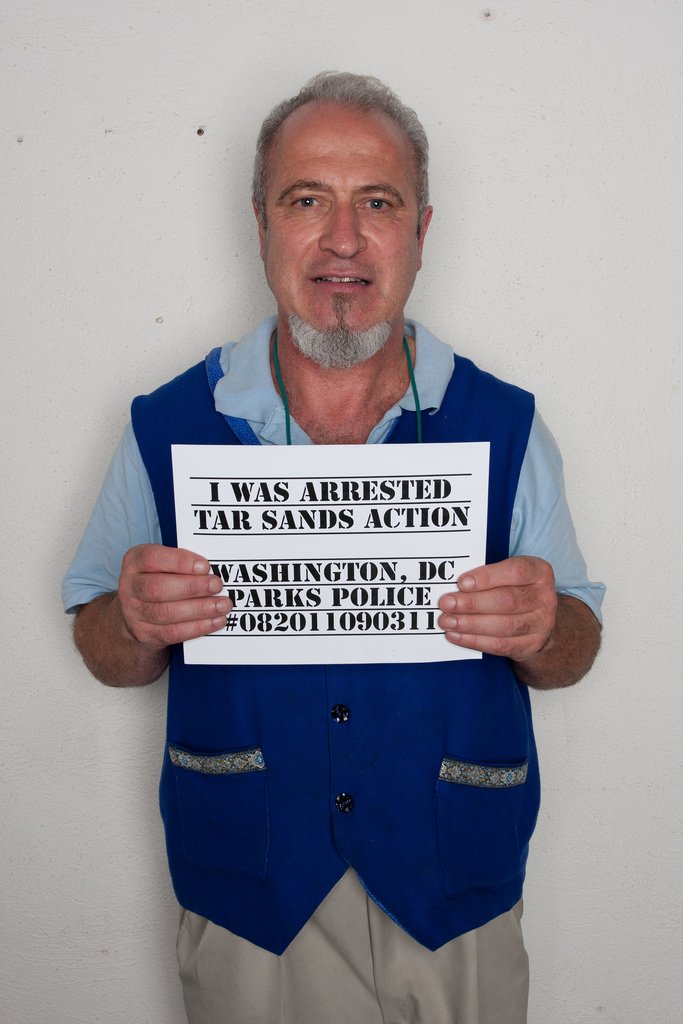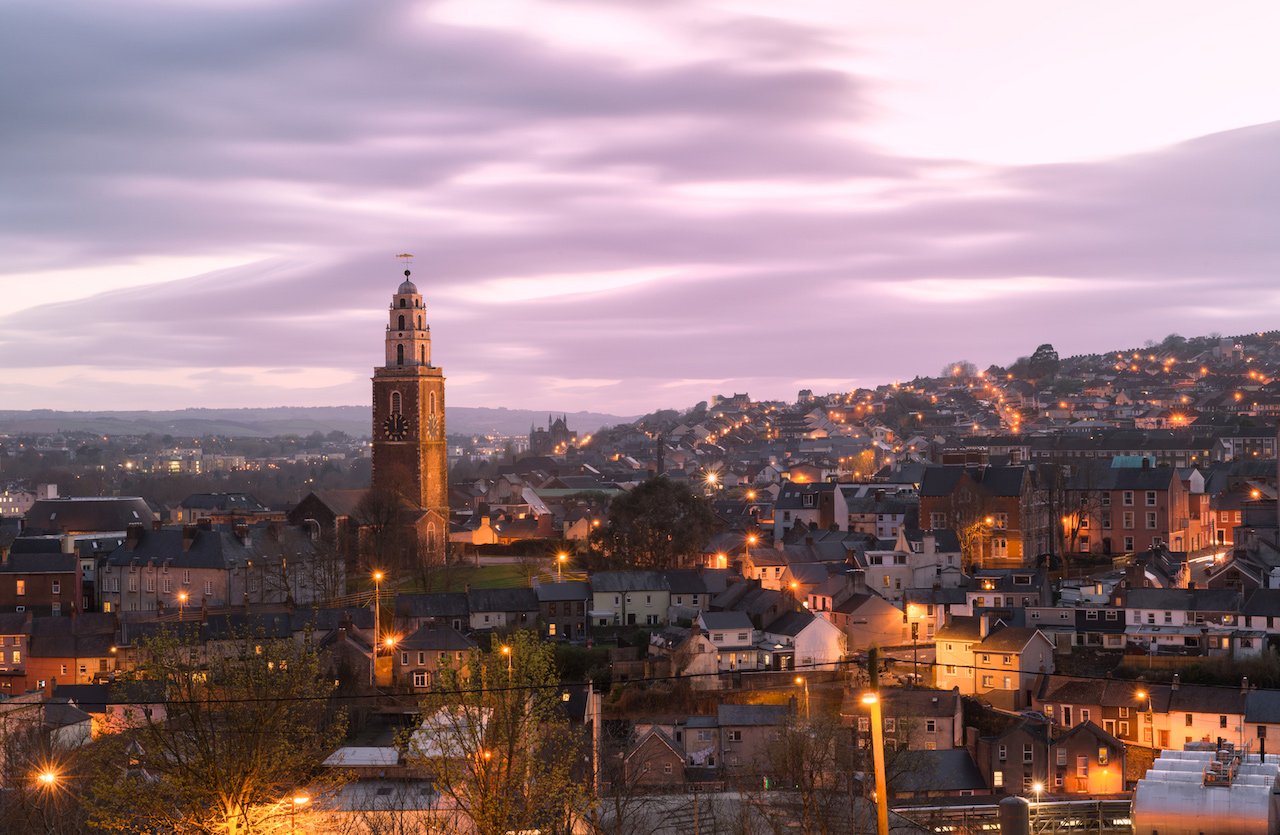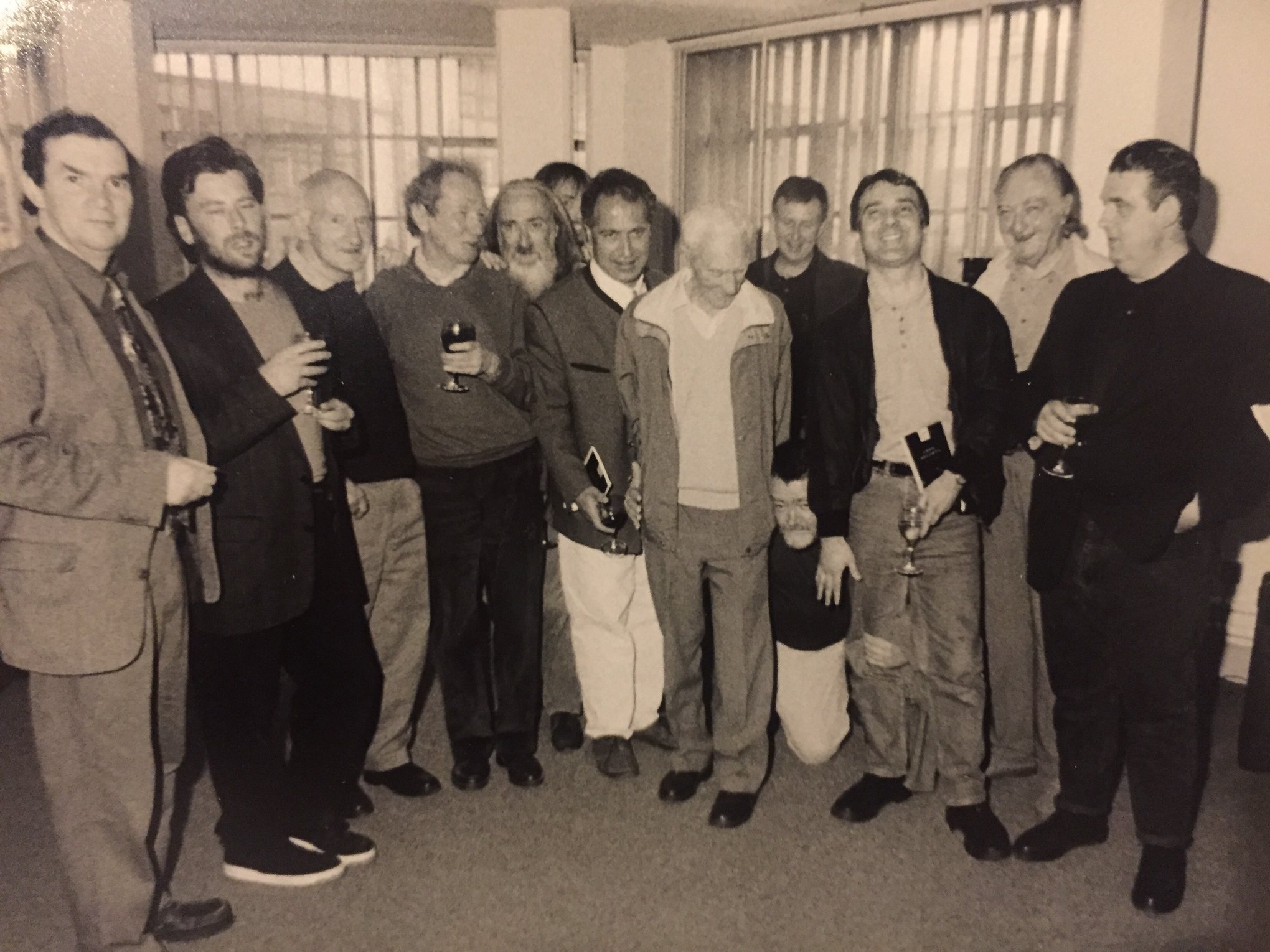Greg Delanty
Greg Delanty was born in Cork City, Ireland, and maintains dual citizenship in Ireland and the United States. He’s lived in Burlington, Vermont since 1986. He is the author of Book Seventeen, The Ship of Birth, and No More Time, among many other books, and he has received numerous awards for his poetry, including a Guggenheim Fellowship. He teaches at Saint Michael’s College in Vermont. His newest title is The Professor of Forgetting, published by LSU Press.
Greg Delanty and Saint Michael’s College
Greg Delanty has been a constant presence at Saint Michael’s College in Colchester, Vermont for over thirty years. Heading Creative Writing in the SMC English Department, Delanty has brought dozens of world class poets and artists to the campus of Saint Michael’s, including Nobel Prize winners, Seamus Heaney, Louise Glück, and Derek Walcott, as well as other renowned poets such as Galway Kinnell, Yusef Komunyakaa, Audrey Lorde, Paul Muldoon, Grace Paley, Ellen Bryant Voigt and Hayden Carruth.
Greg Delanty introducing Louise Glück in McCarthy Arts Center, Saint Michael’s College, just after she won the 1992 Pulitzer Prize for her book The Wild Iris. Delanty reviewed the book before Glück won the Pulitzer and in The Burlington Free Press, where he stated that she was deserving of The Nobel Prize, along with Hayden Carruth who he also reviewed at the same time. .
Delanty and Seamus Heaney, McCarthy Arts Center, Saint Michael’s College, 1990
Delanty began writing poems at seventeen, and he attended University College Cork. During his time at UCC in the 1970s, Delanty revived and edited the Quarryman, the university’s literary journal, and began publishing poems in the likes of the Cork Examiner and Poetry Ireland. He was one of an enclave of young Cork poets, which included poets writing in English such as Gerry Murphy, Thomas McCarthy, Theo Dorgan, Maurice Riordain, Seán Dunne, and Gregory O’Donoghue, as well as poets writing in Irish like Liam Ó Muirthile, Nuala Ní Dhomhnaill, Colm Breathnach and Louis de Paor. Clíona Ní Ríordáin has written about the group most extensively in English Language Poets in University College Cork 1970-1980 (Palgrave Macmillan, 2020). While the National Library of Ireland acquired his papers until 2010, UCC acquired his papers from 2010-2015, and they’re held in the school’s Boole Library.
In 1983, Delanty received the distinguished Patrick Kavanagh Poetry Award (given to an Irish poet who has not previously published a book), and in 1986 his first full-length work, Cast in the Fire (Dolmen Press) appeared. That same year he received the Allan Dowling Poetry Fellowship, judged by Christopher Ricks, the award of $20,000 stipulated that he had to travel to the United States for a brief period.
Since 1987, Delanty has been associated with Saint Michael College, Vermont, initially as a teacher and currently as poet-in-residence. It is here that his poems began to explore the themes of exile and family which would dominate his later work. His collection American Wake (Blackstaff, 1995), which envisions a fifth Irish province ‘where all exiles naturally land’, was followed by The Hellbox (Oxford University Press, 1998), whose title alludes to the printing trade to which his father had devoted his life. The Blind Stitch (Carcanet, 2001), extends the geography of Delanty's poems to include India, and was followed by The Ship of Birth (Carcanet Press, 2007), a collection inspired by fatherhood and committed to ‘affirming the sustaining continuity of life’. Collected Poems 1986-2006 was published by Carcanet/Oxford Poets in 2006.
Among other entries on Greg Delanty are The Oxford Companion to Irish Literature (Oxford University Press, 1996) and The Encyclopedia of the Irish in America (Notre Dame University Press, 1999)." After Delanty’s Collected Poems 1986-2006 (Carcanet Press, 2006) he has expanded his range both in form and content especially with his latest book of poems The Greek Anthology, Book XVII (Oxford Poets of Carcanet Press, England, 2012), which was released in the U.S. in 2015 as Book Seventeen (LSU Press). In an interview with the Poetry Society that took place when the Carcanet edition was published he was asked about this book, and he used the Greek Anthology form as a way to "conjure old and new ways of looking at our contemporary world".
Greg Delanty’s Activism
“Greg Delanty’s work addresses events as varied as the fallout from Chernobyl and the Iraq wars. Most of all, he has become a leading voice on environmental issues. Delanty has spent years tackling the social and political turmoil of our time. Readers see him bring the human destruction of the natural world into his poetic awareness, as early as in poems like “An Oil Spillage,” which appears in 1992’s Southward. The poem ends with the ominous line, “None can escape the dark spreading here.” In contemporary poetry, Delanty’s voice not only one that is always engaging with poetic tradition and renewal but also one that is forward-looking and aware of the social, environmental, and political moment.
“Not surprisingly, Delanty’s attitudes are not confined to the page. He has run for political office in Vermont with the Green Party—he holds dual Irish and American citizenship—and he has been an activist, involved in protests from Washington, DC, to Standing Rock. Proudly, he will tell you he has been arrested at demonstrations. Yet his poems are not polemics. In fact, Delanty would eschew the label of political poet or activist poet. Poetry is so suffused throughout his life that the personal and political are at one in the poetical.” - from “Out of the Ordinary: The Poetry of Greg Delanty,” by Daniel Johnson in the New Hibernia Review.
“When he was a young poet in Ireland in the 1980s Delanty was a passionate supporter of Adi Roche’s CND, as well as a constant protester against cruise missiles and a fervent advocate of the wider peace movement. More recently he has become a hugely influential cultural voice in American environmentalist politics. So, he is no Johnny-come-lately to the environmental debate, his heart has been with the Green vision from the very beginning and his political activism is part of a deeply embedded character trait. In addressing his own father’s early death in ‘Interrogative’ (1992) he wrote: ‘even the flimsiest, most vulnerable creatures/ are equipped with devices to outwit death.’ The major thesis of this new collection from Louisiana State University Press is that death, empowered by the actions of humankind, has finally begun to outwit complex and innocent creatures.” - Thomas McCarthy, from his review of Delanty’s No More Time.
The Oxford Companion to Modern Poetry: Greg Delanty










